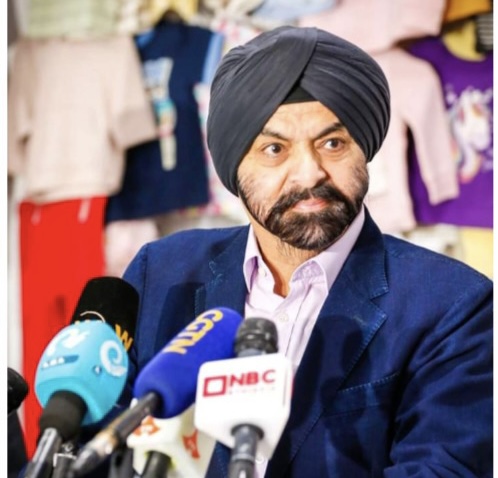Strategic partnerships in Africa are critical to shaping the continent’s economic, political, and social development in an increasingly interconnected world. As one of the emerging global powerhouses, the BRICS alliance of Brazil, Russia, India, China, and South Africa provides unique opportunities for African nations to realise their true potential.
Meanwhile, foreign direct investment (FDI) in Africa has been almost entirely focused on extracting and exporting natural resources for more than a century.
However, since the millennium’s turn, the tide has shifted, and in recent years, the trend has finally flipped. Global investors are increasingly drawn to Africa for the future potential of its people rather than its physical assets.
Petroleum and mining now account for a small proportion of long-term capital inflows, with more investors concentrating on telecommunications, retailing, and services. According to an EY professionals’ database of new investments, the extractive industries have only accounted for more than half of FDI once in the last seven years. The trend is even more pronounced in Sub-Saharan Africa’s 46 jurisdictions.
As a result, it is essential to know what Africa stands to gain from its partnership with BRICS compared to other global alliances, which also play a critical role in the region.
Increased economic cooperation is one of the most significant benefits of the BRICS partnership for Africa. As a result, the BRICS countries have experienced remarkable economic growth and vast resources aligned with Africa’s development goals. In addition, the partnership promotes increased trade and investment, opening new markets for African goods and services. China, for example, has become Africa’s largest trading partner, investing in infrastructure development, energy, and manufacturing, resulting in job creation and technology transfer.
Furthermore, the BRICS New Development Bank (NDB) and the Contingent Reserve Arrangement (CRA) provide Africa with alternative financing mechanisms. These institutions offer desperately needed capital for infrastructure projects, reducing reliance on traditional Western-dominated financial institutions. Including Africa in BRICS development initiatives such as the Belt and Road Initiative (BRI) opens up possibilities for improving transportation networks, regional connectivity, and intra-African trade.
Joining the BRICS gives Africa a platform to raise its voice on the global stage. As the alliance’s sole African member, South Africa brings distinct perspectives and interests, representing Africa’s concerns and priorities. African leaders participate in high-level diplomatic dialogues at BRICS summits and forums, discussing shared challenges and opportunities. Participation in the BRICS gives Africa a stronger voice in global decision-making bodies such as the United Nations Security Council (UNSC). The alliance advocates for a multipolar world order and reforms that reflect the evolving geopolitical landscape. Africa can articulate its aspirations for a more equitable global governance structure and address historical imbalances that have marginalised the continent through collaboration with BRICS nations.
Another significant benefit of the BRICS partnership for Africa is technology transfer and capacity building. The BRICS countries have advanced technical expertise and experience in a variety of sectors that can be used to help Africa’s socioeconomic development. For example, China’s collaboration has facilitated technology transfer in telecommunications, renewable energy, and manufacturing, allowing Africa to close the digital divide. Furthermore, BRICS universities and research institutions provide opportunities for academic and research collaborations, providing African students and scholars with world-class education and training. These initiatives help to develop human capital and improve Africa’s ability to innovate, adapt, and use technology effectively.
The BRICS partnership encourages South-South cooperation by emphasising the importance of mutual learning and experience exchange among developing countries. By engaging with them, Africa can gain insights into successful development models, policies, and strategies implemented by the BRICS nations. This knowledge-sharing enables African countries to adopt best practises, tailor them to their specific contexts, and accelerate their development. Furthermore, the BRICS alliance offers an alternative development narrative to the traditional Western-centric model. The partnership promotes inclusive and sustainable development by addressing poverty, inequality, and climate change. Africa’s membership in BRICS strengthens the continent’s voice in shaping global development agendas, addressing its unique challenges and aspirations.
Otherwise, Africa’s partnership with the BRICS offers several advantages that set it apart from other global alliances. BRICS’ economic benefits, political clout, technology transfer, capacity building, and South-South cooperation align closely with Africa’s development priorities. Due to this alliance, Africa gains access to new markets, financial mechanisms, and technological advancements, which contribute to its economic growth and human capital development. Furthermore, BRICS membership allows Africa to actively participate in global decision-making processes, helping to shape a more equitable international order.
By embracing this partnership, Africa strategically positions itself to reap the benefits and leverage the enormous potential of its collaboration with the BRICS nations. Aside from the BRICS (Brazil, Russia, India, China, and South Africa), Africa has numerous global partners and relationships with countries and organisations worldwide. Here are some crucial collaborators:
United States
The United States has a long history of engagement with Africa, including the African Growth and Opportunity Act (AGOA), the Power Africa programme, and the Young African Leaders Initiative (YALI). The United States supports African nations’ trade, investment, health, education, and security cooperation.
European Union
Through frameworks like the Cotonou Agreement and the Joint Africa-EU Strategy, the European Union (EU) maintains partnerships with African countries. The EU supports African development, trade, security, and governance efforts.
Japan has actively participated in Africa’s development, focusing on infrastructure, education, health, and capacity building. The Tokyo International Conference on African Development (TICAD) is a well-known forum for Japan-Africa collaboration.
Turkey
Turkey has been strengthening its engagement with Africa in recent years. It has increased trade, investment, and diplomatic ties and has been involved in infrastructure projects, humanitarian assistance, and cultural exchanges.
Gulf Cooperation Council (GCC)
African countries have partnered with Gulf nations such as Saudi Arabia, the United Arab Emirates, Qatar, and Kuwait. These partnerships involve trade, investment, infrastructure projects, and cooperation in sectors like energy and agriculture.
India
Although India is part of the BRICS, it maintains bilateral partnerships with various African nations. India focuses on trade, investment, capacity building, and technological cooperation, particularly in agriculture, health, education, and information technology.
South Korea
South Korea has been increasing its engagement with Africa, focusing on economic cooperation, infrastructure development, education, and capacity building. The Korea-Africa Forum serves as a platform for enhancing ties.
China
While China is a BRICS member, its engagement with Africa goes beyond that. China is a major trading partner for many African countries and has made significant investments in infrastructure projects throughout the continent.
The Forum on China-Africa Cooperation (FOCAC) promotes Chinese-African cooperation and dialogue. The African Union (AU) is critical to strengthening African unity and cooperation.
It promotes African regional integration, peace and security, economic development, and social progress.
The AU works with several countries and international organisations.
This is only a partial list of Africa’s international partners. However, it should be noted that African nations also collaborate with other countries and organisations on common interests, such as an inclusive global economy, addressing the climate crisis, and strengthening African democracy. Regional proximity, historical ties, and development cooperation are other areas in which Africa collaborates with global partners.


